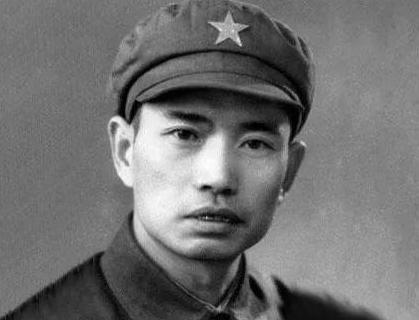In China's modern history, the most recorded thing is about war, and most of the war left people with bad memories. Under the shroud of war, people hid everywhere and did not have a stable life. In order to survive, many heroes and sons and daughters have thrown themselves into the battlefield, where they bravely march forward. Some people have not seen the founding of New China, and some people have grown step by step to become a commanding general and lead a party.

Among the founding generals of new China, there was such a general, who made great military achievements during the war and was awarded the rank of founding lieutenant general in 1955, but after 1967, he disappeared. For the next 7 years, no one knew where he was, and it was not until Premier Zhou pressed him that his whereabouts were known.
This person is Wu Kehua. Wu Kehua was born in 1913 in Yiyang, Jiangxi. When he was a child, Wu Kehua once attended a private school, but because his family was really poor, he had to drop out of school and go home to help his parents work. Later, when Wu Kehua went out to earn a living, he was influenced by progressive ideas, and in 1929, Wu Kehua joined the Communist Party of China and became a member of the Red Army.
During the Long March, Wu Kehua was the commander of the Thirty-seventh Regiment of the Thirteenth Division of the Fifth Red Army, and led the troops to participate in the arduous Long March. After the outbreak of the War of Resistance Against Japanese Aggression, Wu Kehua was the deputy commander of the Fifth Detachment of the Shandong Column of the Eighth Route Army, and later became the deputy commander of the Jiaodong Military Region, working for the consolidation and development of the anti-Japanese revolutionary base areas in the Jiaodong area.
During the Liberation War, Wu Kehua served as the commander of the Forty-first Army of the Fourth Field Army. In the Battle of Huaihai, Wu Kehua led the army to make great contributions. During the Liaoshen Campaign, Wu Kehua led his troops through an apple orchard, and in the face of hunger and thirst, he and his generals still maintained the discipline of the army and did not pick an apple.
After the founding of New China, Wu Kehua was the chief of staff of the South China Military Region. In 1955, Wu Kehua was awarded the rank of founding lieutenant general. In 1963, Wu Kehua was also the commander of artillery. But after 1967, until 1974, Wu Kehua disappeared in front of everyone. In fact, during the special period of New China, Wu Kehua and many other people did not escape.
Later, at a meeting, the prime minister suddenly asked, "Where has Wu Kehua gone?" How come there has been no news about him for so long. The Prime Minister's question was asked to everyone in the meeting, and no one was able to answer his question. After the meeting, under the instructions of the prime minister, the relevant personnel began to investigate Wu Kehua's whereabouts.
After some effort, he finally learned that Wu Kehua was locked up in a secret room. But they knew that now was not the best time to rescue Wu Kehua, and they could not act rashly. If they knew, they would definitely change Wu Kehua to another place. In the end, after research, they decided to use the method of arraignment to bring Wu Kehua out.
In 1975, Wu Kehua re-appointed as the commander of the Railway Corps. In 1987, Wu Kehua died in Guangzhou at the age of 74.